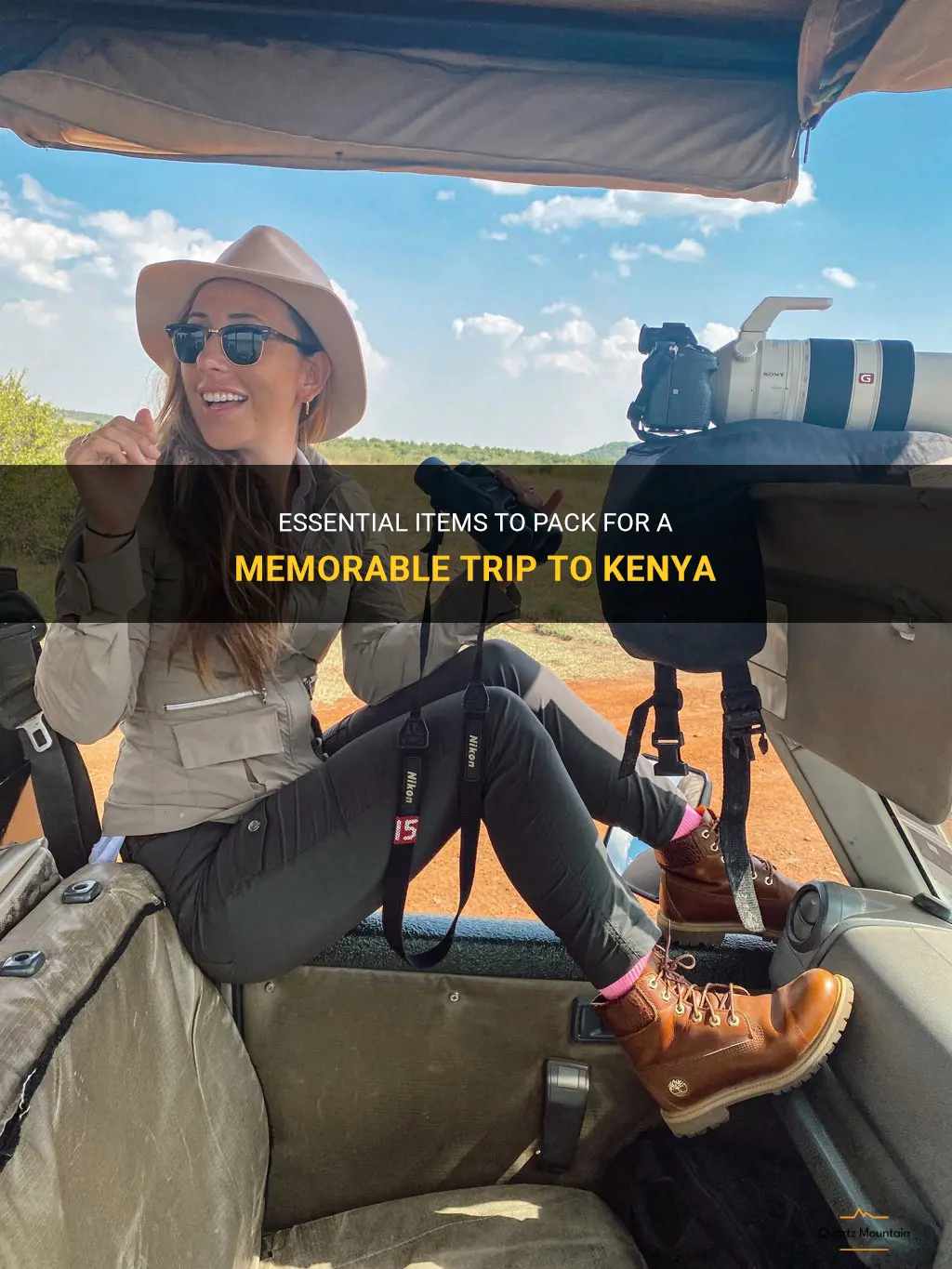
Planning a trip to Kenya? Get ready to embrace the majestic landscapes, diverse wildlife, and vibrant cultures that this East African gem has to offer. However, before you embark on your adventure, it's important to ensure you have all the essential items packed to make your trip even more memorable. From sturdy walking shoes to insect repellent, we've got you covered with our comprehensive list of must-have items for a trip to Kenya.
What You'll Learn
- What essentials should I pack when traveling to Kenya?
- Is it necessary to bring mosquito repellent when visiting Kenya?
- Are there any specific clothing items or accessories that are recommended for a trip to Kenya?
- Should I pack any specific medication or vaccines for my trip to Kenya?
- Are there any items that are considered inappropriate or culturally insensitive to bring to Kenya?

What essentials should I pack when traveling to Kenya?
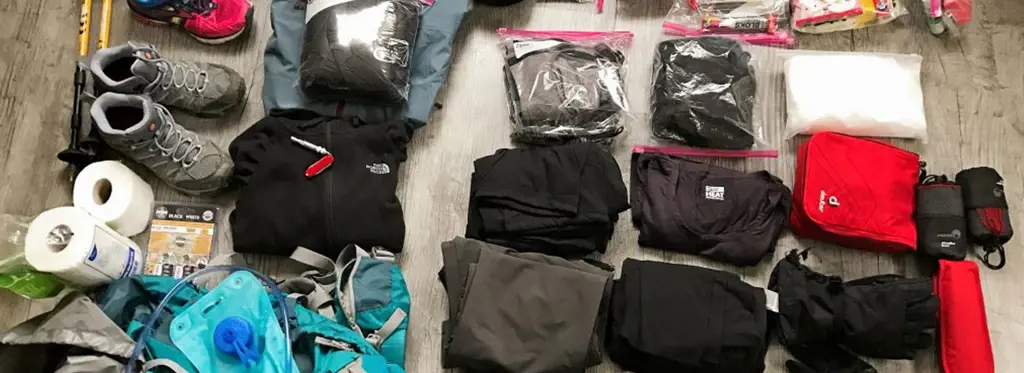
When planning a trip to Kenya, it is important to pack everything you need to ensure a smooth and enjoyable experience. Kenya is a diverse country with varying climates and landscapes, so it is essential to be prepared for different weather conditions and activities. Here is a list of essentials you should pack when traveling to Kenya:
Clothing:
- Lightweight and breathable clothing: Kenya can be extremely hot, especially in the coastal regions and in the northern parts of the country. Pack lightweight and breathable clothing, such as cotton or linen, to stay cool and comfortable.
- Long-sleeved shirts and trousers: These will protect you from the sun and insects during safaris or hikes.
- Sweater or light jacket: It can get quite chilly in the evenings, especially in highland areas like Nairobi or Mount Kenya. A sweater or jacket will provide warmth.
- Swimwear: Kenya has beautiful beaches and lakes where you can swim or snorkel, so don't forget your swimwear.
Footwear:
- Comfortable walking shoes: You will be doing a lot of walking and exploring, so pack comfortable shoes that provide good support.
- Sandals or flip-flops: These are essential for lounging at the beach or around your hotel.
- Socks: Don't forget to pack socks, especially if you plan on hiking or doing outdoor activities.
Travel Documents:
- Valid passport: Make sure your passport is valid for at least six months beyond your planned departure date.
- Visa: Check the visa requirements for your country. Some nationalities require a visa to enter Kenya.
- Travel insurance: It is important to have travel insurance that covers medical expenses, emergencies, and any other unforeseen circumstances.
Health and Safety:
- Prescription medication: If you take any prescribed medication, make sure to pack enough to last throughout your trip. Carry the prescriptions as well.
- First aid kit: Carry a small first aid kit with basic supplies such as bandaids, antiseptic wipes, and pain relievers.
- Insect repellent: Kenya has mosquitos that carry diseases like malaria, so it's crucial to protect yourself. Choose a repellent with DEET or other effective ingredients.
- Sunscreen: Protect your skin from the strong African sun by packing a high SPF sunscreen.
- Water bottle: It is important to stay hydrated, especially in hot climates. Carry a refillable water bottle and drink plenty of water.
Electronics and Miscellaneous:
- Power adapter: Kenya uses Type G electrical outlets, so make sure to pack a universal power adapter if needed.
- Camera and binoculars: Kenya is known for its wildlife and stunning landscapes. Capture the beauty with a good camera and binoculars for a closer look.
- Cash and cards: It is advisable to carry a mix of cash and cards for your trip. ATMs are available in most urban areas.
- Snacks: Pack some light snacks like granola bars or nuts for long drives or hikes.
Remember to pack light and only bring what you need. It is also a good idea to check the weather forecast before your trip and pack accordingly. Being well-prepared will ensure a memorable and enjoyable experience in Kenya.
Creative Solutions for Packing a Broken, Decayed Toothache
You may want to see also

Is it necessary to bring mosquito repellent when visiting Kenya?
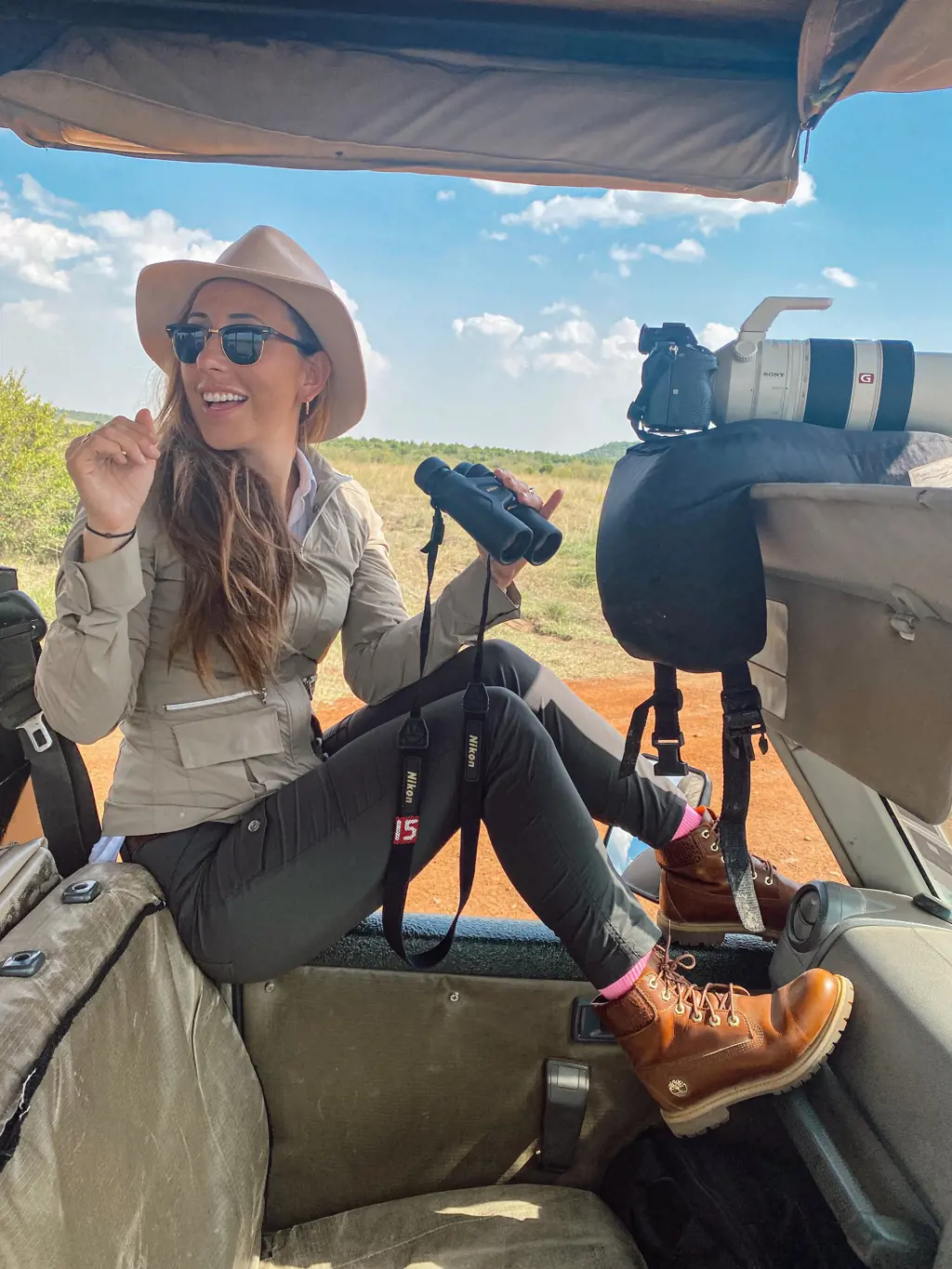
When planning a trip to Kenya, one of the most important considerations is protecting oneself from mosquito bites. Mosquitoes in Kenya are carriers of various diseases such as malaria, dengue fever, and Zika virus. Therefore, it is essential to take precautions and bring mosquito repellent when visiting the country.
To understand the importance of mosquito repellent in Kenya, it is crucial to have a basic understanding of the diseases transmitted by mosquitoes. Malaria, in particular, is a prevalent illness in many parts of the country, including urban areas. According to the World Health Organization (WHO), there were approximately 3.5 million cases of malaria reported in Kenya in 2019. This makes malaria a significant health concern for both locals and travelers alike.
Using mosquito repellent is one of the most effective ways to prevent mosquito bites and reduce the risk of contracting diseases. Repellents containing ingredients like DEET (N,N-diethyl-meta-toluamide) or picaridin are recommended by health authorities to provide long-lasting protection against mosquitoes. These repellents work by either repelling mosquitoes or interfering with their ability to sense human presence.
It is important to remember that mosquito repellent should be used in conjunction with other preventive measures. This includes wearing long-sleeved shirts and pants, especially during dawn and dusk when mosquitoes are most active. In addition, sleeping under a mosquito net and using screens or mosquito coils can further reduce the risk of mosquito bites.
While some may argue that taking antimalarial medication may be sufficient, it is essential to note that these medications are not 100% effective. Moreover, they come with potential side effects and may not provide protection against other mosquito-borne diseases like dengue fever or Zika virus. Therefore, using mosquito repellent remains a crucial preventive measure.
Personal experiences of travelers also highlight the importance of mosquito repellent in Kenya. Many individuals have reported contracting malaria or other mosquito-borne diseases despite taking antimalarial medication. These experiences serve as a reminder of the need for additional protection in the form of mosquito repellent.
In conclusion, bringing mosquito repellent is necessary when visiting Kenya. Mosquitoes in the country are carriers of diseases such as malaria, dengue fever, and Zika virus, making protection against mosquito bites crucial. Using repellents containing ingredients like DEET or picaridin, along with other preventive measures, can help reduce the risk of mosquito-borne diseases. It is essential to prioritize personal health and safety while traveling and take all necessary precautions to avoid mosquito bites.
What to Pack for a Dream Vacation at Excellence Riviera Cancun
You may want to see also

Are there any specific clothing items or accessories that are recommended for a trip to Kenya?
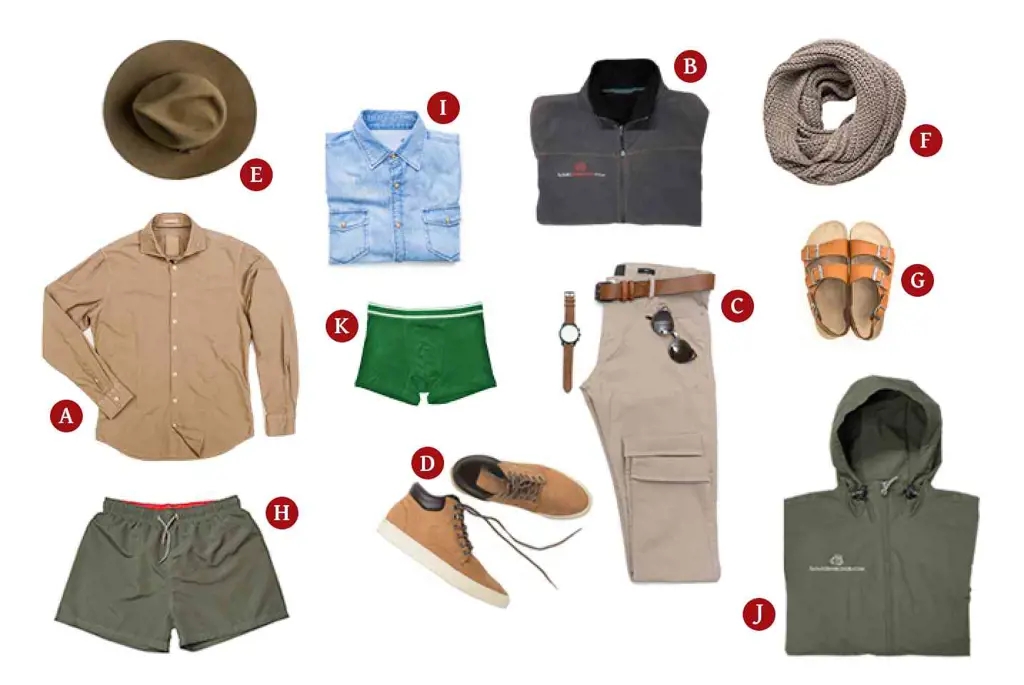
When planning a trip to Kenya, it is important to consider the country's diverse climate and cultural traditions. Knowing what clothing items and accessories to bring can help you stay comfortable and respectful during your visit. Here are some recommendations for your trip to Kenya:
Lightweight and breathable clothing:
Kenya has a tropical climate, with temperatures that can vary throughout the year. It is advisable to pack lightweight and breathable clothing made from natural fabrics such as cotton or linen. These materials help to keep you cool in hot and humid weather, allowing your skin to breathe. Loose-fitting garments like t-shirts, shorts, dresses, and skirts are recommended for comfort.
Long-sleeved shirts and pants:
While you will want to pack lighter clothing items for warm days, it is also important to bring clothing that offers protection from the sun and insects. Long-sleeved shirts and pants made from lightweight materials can shield your skin from harmful UV rays and prevent mosquito bites, particularly during evenings and in areas with dense vegetation.
Comfortable walking shoes:
As Kenya offers a wide range of outdoor experiences, including safaris and trekking in national parks, it is crucial to have comfortable walking shoes. Opt for closed-toe shoes with good arch support and sturdy soles. Make sure to break in your shoes before your trip to prevent blisters or discomfort during long walks.
Swimwear:
Kenya boasts beautiful beaches along its coastline and stunning lakes, making swimwear an essential item for your trip. Whether you plan to snorkel, swim, or simply relax by the water, don't forget to pack your bathing suit, beach towel, and sunscreen.
Hat and sunglasses:
To protect yourself from the strong African sun, bring a wide-brimmed hat or a cap that provides shade for your face and neck. Additionally, pack sunglasses with UV protection to shield your eyes from the bright sunlight.
Modest clothing for cultural respect:
In many parts of Kenya, particularly in rural areas and when visiting religious sites, it is important to dress modestly out of respect for the local culture and customs. This means avoiding revealing clothing or clothing with offensive or provocative imagery. If you plan to visit mosques or other religious sites, consider packing a scarf to cover your head and shoulders.
Insect repellent:
Kenya is home to various insects, including mosquitos that can transmit diseases such as malaria or dengue fever. Bringing a good quality insect repellent that contains at least 20% DEET can provide protection against bites. Apply the repellent on exposed skin and clothing, particularly during the evening and nighttime when mosquitos are more active.
Money belt or secure bag:
To keep your belongings safe while exploring, consider using a money belt or a secure bag that can be worn under your clothing. This helps to prevent pickpocketing or theft and provides peace of mind while traveling.
Remember to check the local weather forecast before your trip to pack accordingly. If you are planning a visit to higher altitude areas, such as Mount Kenya or the Aberdare Range, bring warmer clothing as temperatures can drop significantly. Lastly, always pack comfortable and versatile clothing that can be layered to adapt to changing weather conditions.
By following these clothing and accessory recommendations, you can ensure a comfortable, respectful, and enjoyable trip to Kenya. Don't forget to pack your sense of adventure and immerse yourself in the country's rich culture and stunning landscapes!
Essential Items to Pack on a Memorable Cruise to Papua New Guinea
You may want to see also

Should I pack any specific medication or vaccines for my trip to Kenya?

Traveling to a foreign country can expose you to new diseases and health risks that you may not be accustomed to in your home country. It is essential to take necessary precautions to ensure a safe and healthy trip. If you are planning a trip to Kenya, there are a few specific medications and vaccines you should consider packing to protect yourself.
Routine Vaccinations:
Before traveling to any country, it is important to ensure that you are up-to-date on routine vaccinations such as measles-mumps-rubella (MMR), diphtheria-tetanus-pertussis (DTaP), chickenpox, and polio. These vaccinations protect against common diseases that can be found anywhere in the world.
Yellow Fever Vaccine:
Kenya is a country where yellow fever is endemic, and proof of yellow fever vaccination may be required for entry. Yellow fever is a viral disease transmitted by mosquitoes and can be potentially fatal. It is advisable to get vaccinated against yellow fever at least ten days before your trip. The vaccine provides long-term protection and is typically a requirement in many African countries.
Malaria Prevention:
Malaria is a prevalent disease in Kenya, especially in rural areas or regions with high mosquito populations. It is essential to take malaria prevention medication, such as antimalarial pills, before, during, and after your trip. You should consult a healthcare professional to determine the most suitable medication and dosage for your specific needs.
Travelers' Diarrhea Medication:
Travelers' diarrhea is a common risk when visiting Kenya. This condition is usually caused by eating or drinking contaminated food or water. It is advisable to pack over-the-counter medications such as loperamide (Imodium) or bismuth subsalicylate (Pepto-Bismol) to alleviate symptoms and prevent dehydration. However, it is always best to practice safe food and water precautions and avoid consuming street food or tap water.
Prescription Medications:
If you have any pre-existing medical conditions or take prescription medications regularly, it is crucial to pack an adequate supply for the duration of your trip. Ensure that you have enough medication to last your entire stay in Kenya, including any unexpected delays. It is also advisable to carry a copy of your prescriptions, preferably in English, and a note from your healthcare provider describing your condition and the necessary medications.
In addition to packing the appropriate medications and vaccinations, there are several other general health precautions to consider when traveling to Kenya:
- Stay hydrated by drinking bottled water and avoiding tap water or ice cubes.
- Use insect repellent containing at least 20% DEET to protect against mosquito bites.
- Practice good hand hygiene by using hand sanitizers or washing your hands with soap and clean water.
- Avoid contact with stray or wild animals to prevent exposure to diseases like rabies.
- Protect yourself from the sun by using sunscreen with a high SPF and wearing protective clothing, especially during peak hours.
Remember, it is always best to consult with a healthcare professional or visit a travel medicine clinic before your trip to ensure that you receive the most accurate and up-to-date medical advice based on your individual needs and health condition. By taking necessary precautions and packing specific medications and vaccines, you can enjoy a safe and healthy trip to Kenya.
Essential Items to Pack for a Memorable Trip to Singapore
You may want to see also

Are there any items that are considered inappropriate or culturally insensitive to bring to Kenya?
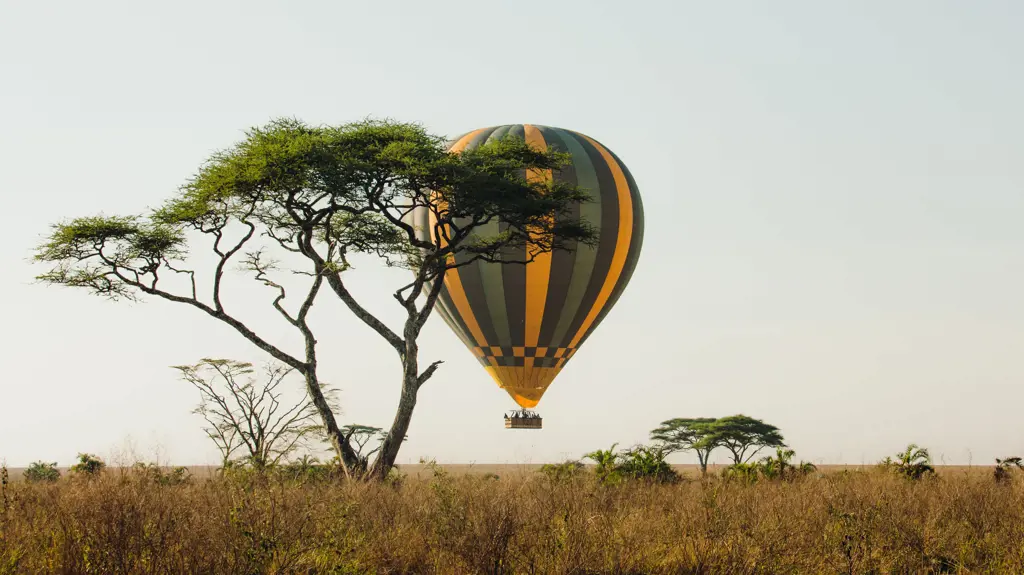
When traveling to Kenya, it is important to be mindful of the local culture and customs. This includes being aware of items that may be considered inappropriate or culturally insensitive to bring with you. While Kenya is a diverse country with many different cultures and customs, there are a few general guidelines to consider.
One item that is generally considered inappropriate to bring to Kenya is any clothing that is revealing or considered immodest. Kenya is a conservative country, and it is important to dress modestly out of respect for the local culture. This means avoiding clothing such as short skirts, shorts, or low-cut tops. It is also a good idea to avoid clothing with offensive or inappropriate slogans or images.
Another item that may be considered culturally insensitive to bring to Kenya is anything that depicts or promotes illegal or harmful activities. This could include items such as drug paraphernalia, weapons, or explicit materials. Kenya has strict laws and regulations, and bringing these types of items with you could not only be culturally insensitive, but could also land you in legal trouble.
It is also important to be mindful of items that may be considered disrespectful to the local culture or religion. For example, bringing religious materials or symbols that are not accepted or respected in Kenya could be seen as insensitive. It is always a good idea to research and understand the local customs and religions before traveling to any country, and to be respectful of those customs and religions when visiting.
Additionally, it is important to be aware of the impact that bringing certain items may have on the local environment and economy. For example, bringing invasive plant species, exotic pets, or items made from endangered or protected animals can have a negative impact on the local ecosystem and wildlife. It is always best to research and understand the regulations surrounding the import and export of certain items before traveling.
In conclusion, when traveling to Kenya it is important to be mindful of the local culture and customs. This includes being aware of items that may be considered inappropriate or culturally insensitive to bring with you. It is always a good idea to research and understand the local customs, laws, and regulations before traveling to any country, and to be respectful of those customs when visiting.
Essential Items to Pack for Your Culebra Getaway
You may want to see also
Frequently asked questions
It is important to pack lightweight, breathable clothing for Kenya due to its warm climate. Cotton or linen shirts, shorts, and dresses are a good choice, along with a lightweight jacket or sweater for cooler evenings. It is also advisable to bring a hat, sunglasses, and comfortable walking shoes or sandals for exploring.
If you are planning to go on a safari in Kenya, it is recommended to pack binoculars, a camera with a telephoto lens for capturing wildlife, and a flashlight for nighttime activities. Additionally, it is important to bring insect repellent, sunscreen, and a water bottle to stay hydrated during your safari adventures.
It is advisable to pack a basic first aid kit containing items such as band-aids, antiseptic cream, painkillers, and any necessary prescription medications. It is also important to bring insect repellent and malaria medication if you are visiting a high-risk area. Make sure to consult with your healthcare provider or a travel clinic before your trip to Kenya.
In addition to your clothing, gear for safaris, and medical supplies, there are a few other essential items to pack for your trip to Kenya. These include a money belt or pouch to keep your valuables safe, a universal power adapter for charging your electronic devices, a lightweight rain jacket or poncho, and a reusable water filter or water purification tablets for areas with limited access to clean water. Additionally, don't forget to pack your travel documents, including your passport, visa, and any necessary vaccination certificates.







